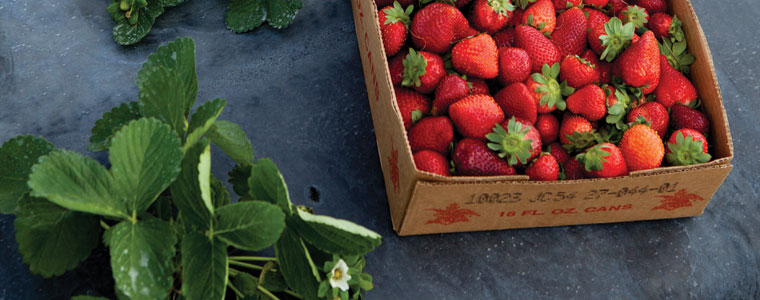A University of Florida-led research team’s development of a tracking system could change the way companies ship fresh fruits and vegetables, letting them know which produce is closest to expiration and providing consumers the freshest products available.
Jeffrey Brecht, director of the UF Institute of Food and Agricultural Sciences’ Center for Food Distribution and Retailing, studied strawberries from their harvests in fields in Florida and California to their delivery to stores in Illinois, Washington, Alabama and South Carolina.
Colleagues from the University of South Florida, Georgia Tech and industry partners collaborated on the project, funded by a $155,000 grant from the Walmart Foundation.
The researchers placed two radio frequency identification (RFID) devices into each pallet of strawberries as they were picked. The devices allowed them to track the strawberries’ temperature from the field, to distribution centers and then on to stores.
Their theory is that if you know the quality of the produce and the temperatures to which it has been exposed, you will know which produce to deliver first to stores.
Companies normally measure only the temperature of an entire truck. But individual pallets can vary greatly in temperature, depending on what time of day berries were picked and even their placement on the truck. Strawberries picked in the cool of the morning and placed on a refrigerated truck would stay fresher longer than strawberries picked in the afternoon heat.
Brecht said under perfect conditions, strawberries maintain a good quality for up to 14 days. Less than perfect conditions, mainly due to a lack of temperature control, drastically reduce the berries’ postharvest life. It can take as long as four days to go from field to store for a cross-country trip, such as from California to South Carolina.
Maintaining good quality, he said, helps consumers buy what is freshest and reduces food waste.
“If you improve the efficiency of postharvest handling, you reduce waste and losses and that improves sustainability,” Brecht said. “Because, of course, if you ship something to market that’s not going to end up being eaten by consumers, every single bit of input in growing it, harvesting, packing, cooling, shipping — everything is wasted.”
Source:
- Jeffrey Brecht, jkbrecht@ufl.edu

